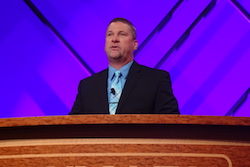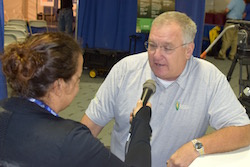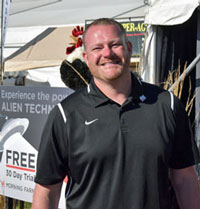
Fields in Humbolt County, Iowa. Green is soy and yellow is corn. Descartes Labs machine learning uses satellite imagery to find fields and then differentiate among different groups.
In August Descartes Labs offered their first 2016 U.S. Corn Yield Forecast and now they’re adding soybeans to the weekly forecast as well.
The forecast is significant because the company is using satellites and weather data to analyze spectral signatures for corn, offering information about crop health and relative productivity. Using a petabyte of data, 30,000 computers and 16 hours to process data, Descartes Labs creates an extremely accurate prediction. In fact, in an 11 year back test the predictions made from this model had a lower rate of error than the USDA’s at every point in the growing season.
This first soybean outlook was projected at 47.89 bushels per acre and 3.98 billion bushels. The newest numbers for this week are 48.3 bushels per acre. The USDA, by contrast, is calculating a total production of 4.20 billion bushels.
The Descartes Labs soy yield is lower than USDA’s. We believe that many other forecast models haven’t captured the effect of August’s mixed weather and its potentially negative impact on “fill,” i.e. the seeds in the soybean pods growing to maturity. Nonetheless, we project 14% of counties to have record soybean production and about two-thirds of counties to be better than their 11 year averages.
The company has also made the numbers available to the public on their website. Each week the latest numbers are published. You can sign up for the newsletter, or download an app as well.













